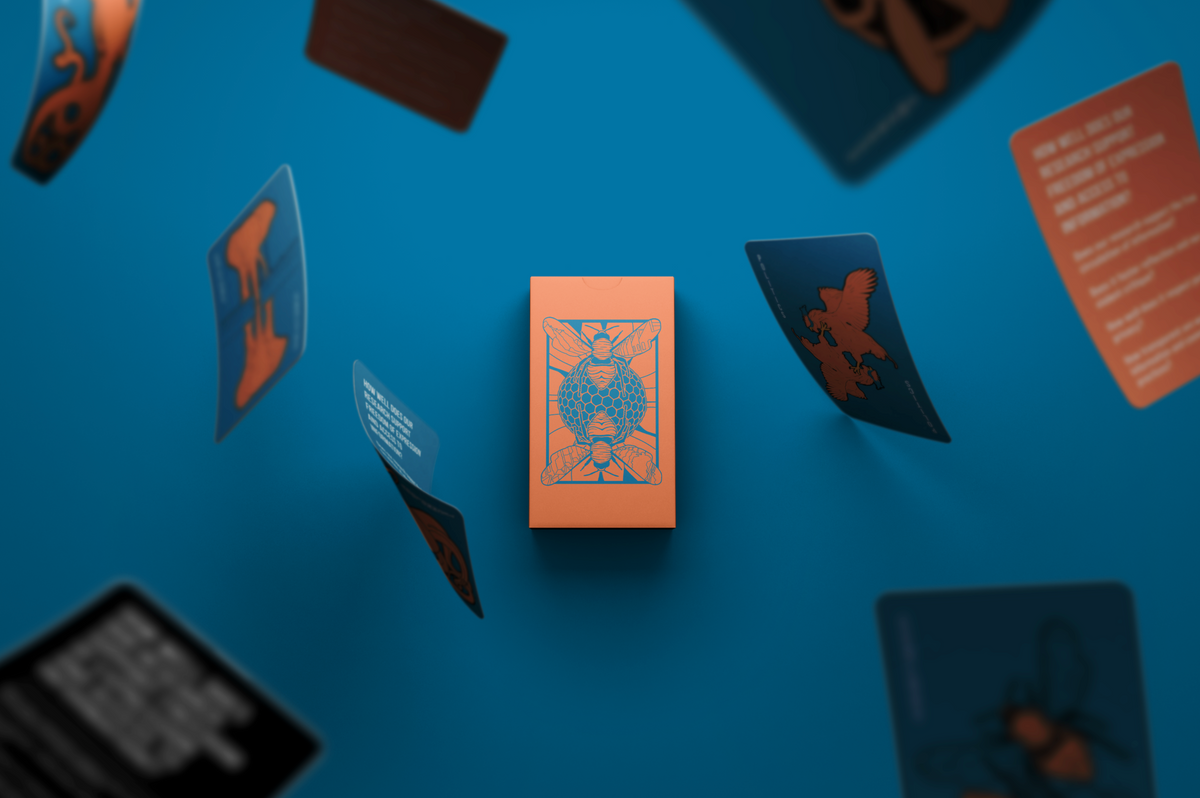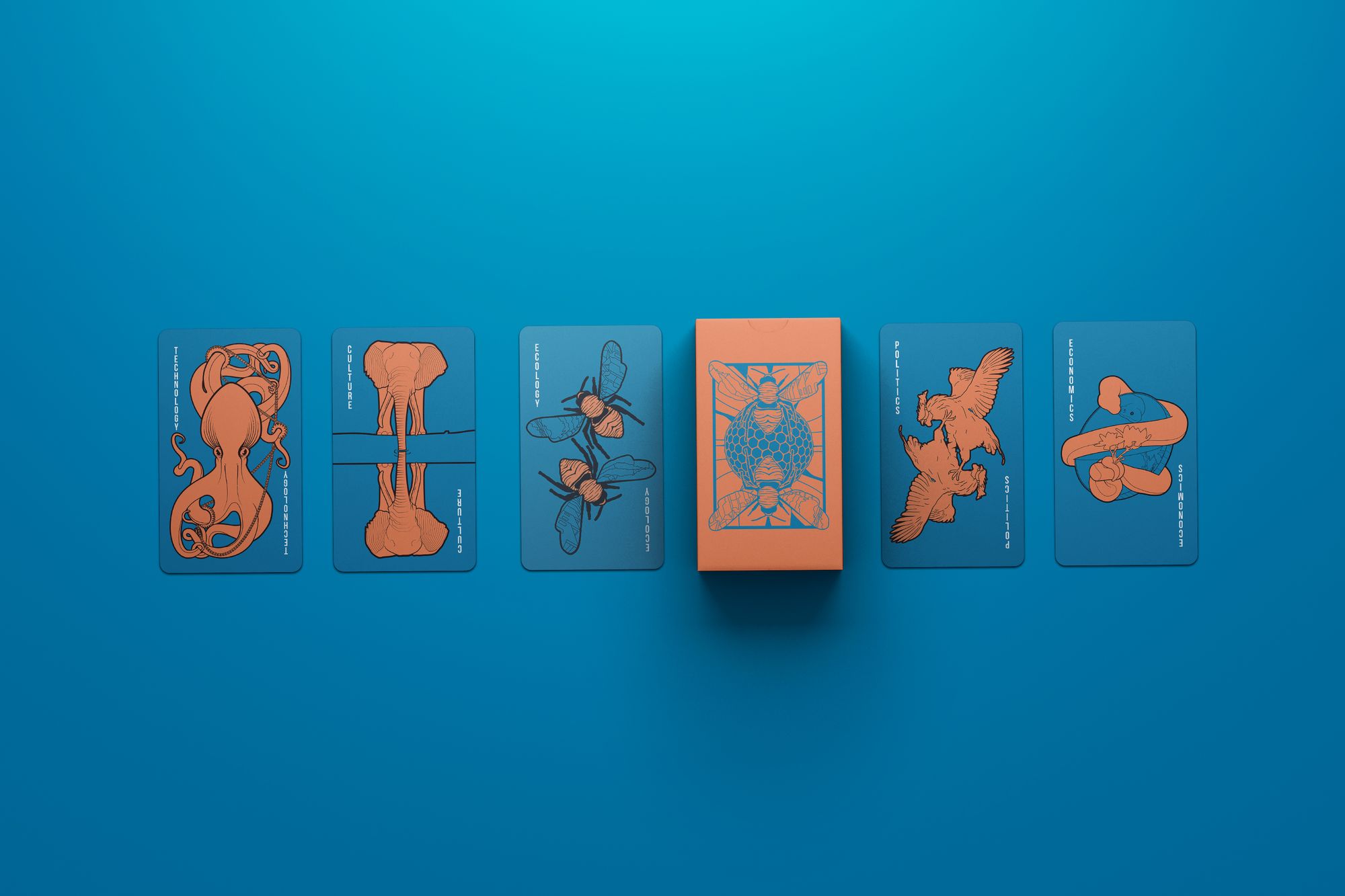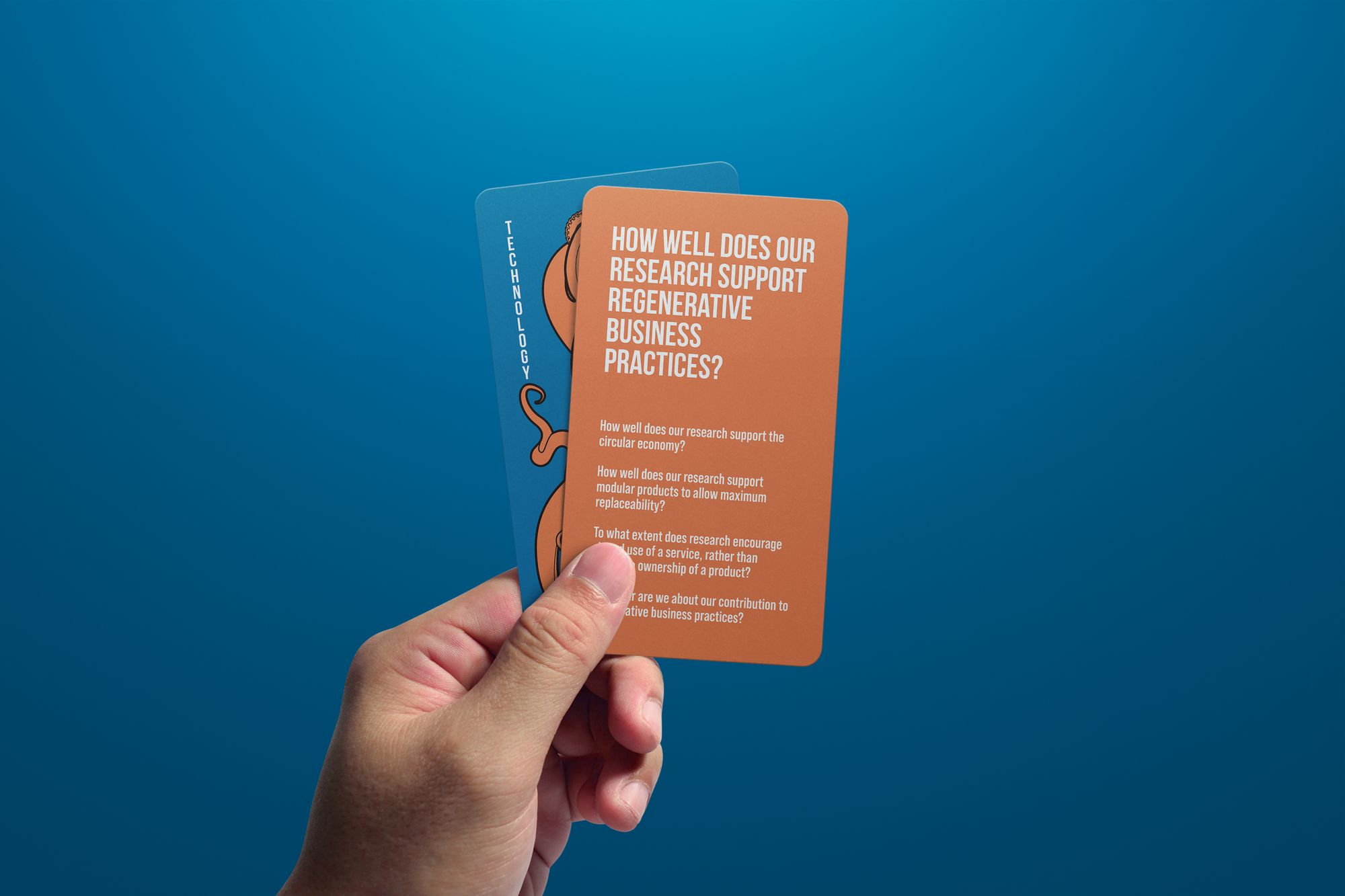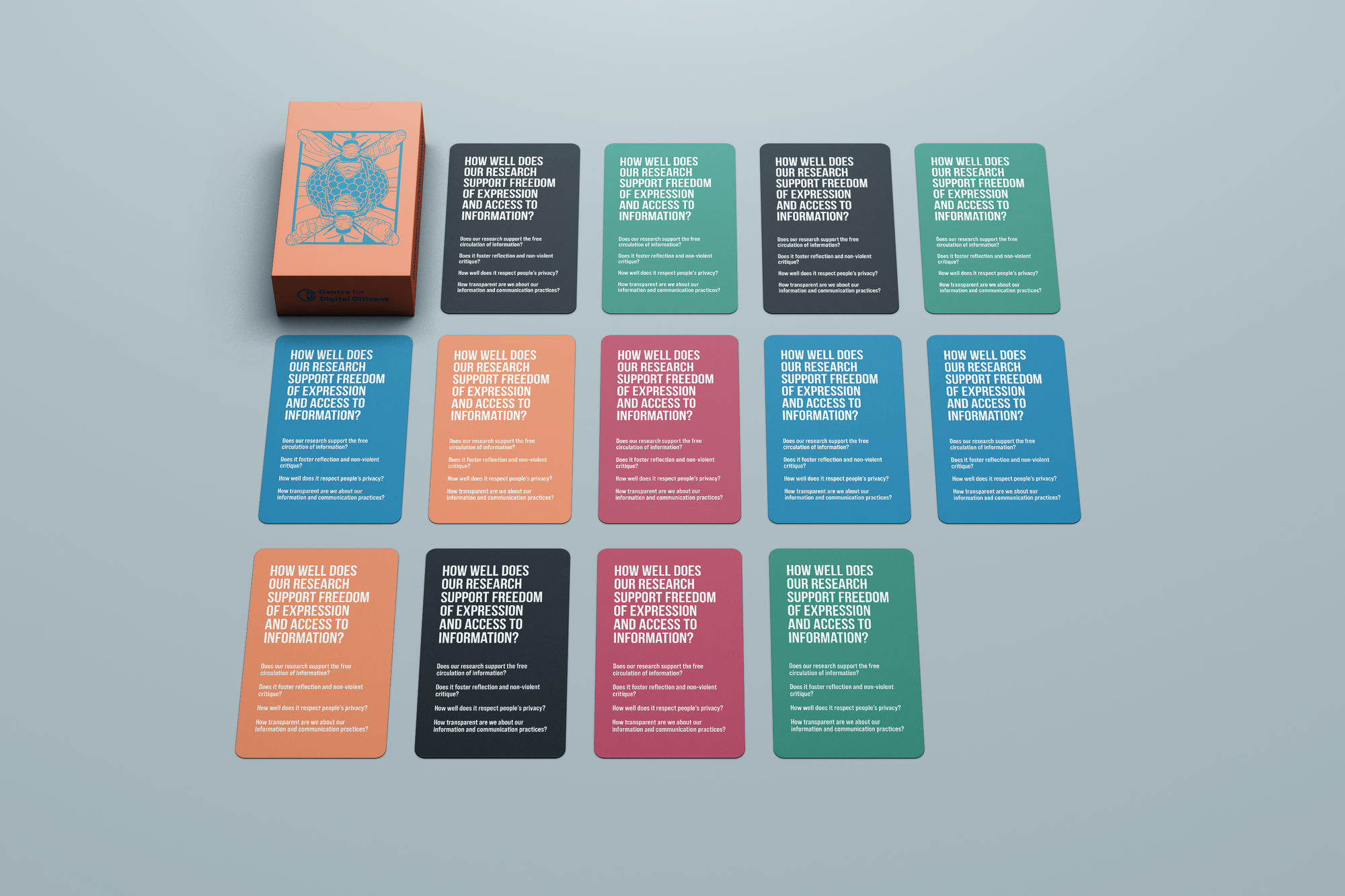
Tell us more about the Sustainability Reflection Cards, what are they?
The Sustainability Reflection Cards are designed to be a tool to reflect on what sustainability means in relation to digital technology and technology research and design practice. They help users understand sustainability as both as a holistic concept while also offering specific questions to talk about its aspects.
The cards are sorted into five domains: Ecology, Economics, Politics, Culture, and Technology. Domains are colour-coded. The back of each card also has an illustration of its domain, as a creature from the animal kingdom. Each domain consists of seven perspectives.

Each perspective card consists of a question summarising this particular perspective on sustainability. It also includes four sub-questions, representing different aspects of this perspective.
Reflecting on past research projects and developing new research proposals with sustainability in mind, the cards might help answer questions like these:
- How can we contribute to ecological, economic, political, cultural, and technological sustainability through our work?
- How can not only the (intended) outcomes of our research, but also the project and our research organisation more widely be more sustainable?
- How can the impact of our work be sustained beyond the end of the project?
How did you come up with the original idea for this?
We have been interested in how technology can help us to live more sustainable lives and in the sustainability of technology itself for a long time.
In our PhD and CDC work, we also began to consider more explicitly the sustainability of research outputs and relationships with community partners. In an attempt to bring those different notions of sustainability together, we explored various sustainability frameworks.
One of them was the “Circles of Sustainability” framework, as described in the book Urban Sustainability in Theory and Practice: Circles of Sustainability, by Paul James. The framework attempts to be at once holistic and specific. It comes with a comprehensive methodological framework to assess the sustainability of cities.
While reading about it, we had the idea to translate this framework for HCI researchers. Instead of assessments, however, it should be a tool for reflection, for example for a team of researchers who work in the same lab. Its four domains (ecology, economics, politics, and culture) formed the basis for the card deck, to which we later added a fifth domain (technology). We developed the 7 perspectives for this domain out of HCI and Participatory Design literature concerned with the longevity of technological interventions.
Why cards? What is it about using cards that help people have these discussions?
We initially developed the idea of cards to invite more open and non-prescriptive ways of engaging with James’ framework: shuffling, browsing, folding, and playing. Like others, we hoped that a physical-material card deck would function as an object of curiosity and a call to action throughout the development and evaluation of diverse projects.

We elected to illustrate James’ four original domains of sustainability as animals (ecology as a bee, economics as a snake, politics as a rooster, and culture as an elephant), alluding to the trope of sustainability only pertaining to the natural world. The illustrations themselves have also invited their own reflection, the creation of further domains (suits), and the critique of the wider discourse around sustainability itself. The fifth domain, Technology, is illustrated as an octopus.
Working with UX/UI students from Purdue University over a summer project, we ran co-design sessions and prototyped digital interactions for the cards, provided for free as assets to be used in online collaborative workspaces, or printed out into low-cost physical decks. We implemented the first iteration of the website, accessible at www.sustainability.cards
You have used the cards at various workshops, what did you learn from these? How have the cards changed over time?

We have used the cards both in-person and online, which are documented on the website’s blog. Participants generally react very positively and welcome the broad yet specific questions, prompting them to think about sustainability more in new ways.
We quickly learned that there are as many ways of working with the cards as there are projects. Our very first engagement at Mozilla Festival 2022 showed us how extensively each question can be discussed. There, small groups participants focused on only one perspective card.
At a later engagement with an HCI lab in Europe, we used the cards with individual researchers to map how well, in their opinion, their lab fares across the different domains of sustainability. We learned there how differently cards can be mapped. We iterated this method for the workshop at the Designing Interactive Systems (DIS) 2023 and found yet more different ways of mapping. We document a few different use cases on the website.

In all engagements, participants also critiqued the formulation of some of the questions or the choice of words. We’ve taken this criticism on board and iterated not only the design of the cards but also the questions for the current version of the cards.
At the DIS 2023 workshop, we also had an extensive discussion about one particular card, relating to social justice and its centrality to sustainability. We will take this on board for the next version of the card deck.
Of course, a single engagement with the cards, even if it highlights under-represented sustainability aspects in one’s research agenda, is not enough to lead to a shift or change. We therefore want to explore how the method can better support participants in formulating goals for future action and how they can hold each other accountable to those.
What's next for the Sustainability Reflection Cards?
With the second iteration of the cards just released, we will deploy the cards with HCI research labs and project groups. This will of course also include the different CDC research themes. We welcome anyone interested in using them to get in touch with us.
Moreover, the card deck itself is a work-in-progress and we openly invite anyone, in particular previous participants, to contribute to its continuous design.
There are two specific design changes we already plan for the next version:
First, we want the cards to be more modular. For Mozilla Festival, which is mostly attended by professionals and laypeople rather than researchers, we created a custom version of the cards, pivoting from framing the questions around “research”, and instead framed them around “technologies” (devices or infrastructures) that participants could choose. Taking this flexibility forward, the next iteration of the cards will allow participants to pick from two stacks of cards, one with the topic, e.g., “our research project”, “our lab”, or “the technology we build”, and one with the different sustainability aspects.
Second, learning from the DIS workshop and the discussions we want to give social justice more space, so rather than having a single card we want to create a sixth domain on “just sustainability”, highlighting more specific avenues on how research could contribute to social justice.
How does this project fit with the themes from the Centre for Digital Citizens?
This project cuts across the four challenge areas of the Centre. It could be used in any ongoing Centre for Digital Citizens project to discuss and consider the multiple overlapping and perhaps contradictory aspects of sustainability.
It could also be used when planning new projects to build sustainability into the project design from the start.